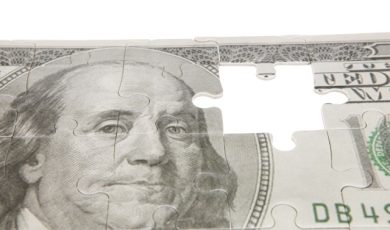Max Borenstein, Randy Barnes, and Jim Hecht wanted to take viewers someplace different than the 30 for 30 documentaries that have dominated sports storytelling the last decade.
“Winning Time: The Rise of the Lakers Dynasty,” a 10-part HBO Max docuseries examining the evolution of the 1980s “Showtime” Lakers makes it clear that while based on Jeff Pearlman’s 2014 book “Showtime” and scores of other source material, this account is fictionalized, and going places “The Last Dance” wouldn’t have been allowed.
“What’s exciting for us creatively is that we get to get in those rooms that you can’t get into there,” said Borenstein, an executive producer.
It does so right away, with an Episode 1 prologue set on Nov. 5, 1991, in Cedars Sinai Medical Center in Los Angeles as Earvin “Magic” Johnson’s diagnosis of HIV is wordlessly portrayed. That’s where “Winning Time” wants to be.
“No one has footage of … and yes, we’re imagining our way into it. We’re doing a great amount of research and we’re trying to do our best to be true to what we believe these characters would have felt and thought in the moment,” Borenstein explained in a media junket before the March 6 debut.
“Documentaries are incredible and they can go deep in certain factual ways, but a dramatization … there’s nothing like that to be able to get into the soul.”
In the second scene of Episode 1, John C. Reilly – playing Dr. Jerry Buss, introduces himself from his morning-after lodgings at the Playboy Mansion, a semi-nude partner sleeping at his side.
“There are the facts and then there’s the emotion that’s under the facts that sometimes a documentary can’t necessarily hit in the same way,” executive producer Barnes said. “And I think, plus, all of the other stuff around the context, to the time that it took place in goes beyond just the facts. And I think we do a really good job of contextualizing both. We get the period of time that it was set in, which tells one aspect of the story, the fact itself, and then the emotional component as well.”
 Hecht, who originally sold Pearlman on the idea of turning his book into a script to pitch around Hollywood, said he was interested from the beginning in going beyond boundaries.
Hecht, who originally sold Pearlman on the idea of turning his book into a script to pitch around Hollywood, said he was interested from the beginning in going beyond boundaries.
One of his favorite childhood shows, The White Shadow, would never have been so compelling as a documentary, he said. He happened to be watching Friday Night Lights when he made his approach to Pearlman on Easter with non-alcoholic wine, some chocolate, and tomato on Easter 2014.
“I want to hang out with Magic. I want to know what Magic’s like when the cameras weren’t on,” Hecht said.”I want to know what they talked about. I want to know what Magic was like with Kareem. It’s hard to get stuff out of Kareem in a documentary.
“I want to know what Kareem is like away from the court and the cameras and the public eye, and Pat Riley and all those guys. I don’t know how people are going to take it, but that was just the thing that meant more to me, that I thought would be more meaningful to the audiences. And that’s not to crap on people that want to do documentaries. It’s just the lens that I viewed it through.”
Jason Clarke takes Jerry West off ‘The Logo,’ into dark places
Though Buss and Johnson are clearly the focus of “Winning Time,” Jason Clarke’s aggressively self-loathing and petulant portrayal of Laker legend Jerry West permeates early episodes. It is likely to startle fans who remember him as the newsreel sharpshooter from West Virginia, “The Logo,” or buttoned-down older man.
Clarke’s Jerry West explores the rage and anguish of his childhood the 83-year-old has discussed publicly and what the weight of losing six championship series to the Boston Celtics inflicted onto his psyche. Then, the pressure of building a team around Johnson, the Lakers’ first-round draft pick in 1979. West has discussed the facts of his pained past before, but the dramatization of it can be jarring. There has been pushback.
“You’re seeing what I think every professional athlete or everybody who’s really busted their ass at everything in their life and given their all to something they love,” Clarke said, “[Where] you have to deal with ‘what now?’ and ‘what did it all mean if it doesn’t want me?.’ It’s making him ill, and he’s at that point, he’s got his two kids, his marriage has not worked out and he’s just … I think it gives you an idea of what all these athletes and these titans of their times went through.”
Hecht said viewers would likely find a character in the show with which to identify. For him, it’s West.
“I had my own personal struggles with depression and anxiety and stuff like that. And, when Jerry West talks about the way that he feels, it speaks to the way that I sometimes feel,” Hecht told PlayUSA.
“So you look at a guy who’s known for being a logo, a one-dimensional image, and beyond that is all this complexity that you can really identify with.”
“I’ve also dealt with addiction issues and stuff like that, and when he talks about basketball, I hear an addict. Talking about it gets out and he gets withdrawal. He gets miserable. He has to get back in. He gets one hit, he needs more like he needs total control. I get that as a person.”
John C. Reilly, Quincy Isaiah guide viewers through Showtime as narrators in ‘Winning Time’
In that first Playboy Mansion meeting with Buss, Reilly introduces another key element of the show in demolishing the fourth wall. After dressing and extricating himself from the aftermath of the bacchanal, Reilly begins laying out Buss’s plans, doing in a few minutes and with attention-demanding heft what no documentary can.
Quincy Isaiah as Johnson eventually addresses the viewer directly, too, but Reilly uses it most as the protagonist on this whole outlandish journey. It’s an effective method to fill in gaps the real Lakers wouldn’t. The show had no input from former Lakers players or Buss family members – they refused – except two notes from point guard Norm Nixon, whose son, Devaughn, portrays him.
“For me, it was a lot of fun, because I got to treat the camera, AKA the audience as if they were a partner with me in the story,” Reilly said. “It is almost like a great little shortcut to making a connection with the audience. You’re not just watching me in this presentational way, I’m reaching out directly to you and saying, ‘Hey, can you believe this is happening to me? Like it’s just such a fun thing, you know?’
“And then once you establish that, that can happen in our show, then you’re constantly waiting like, ‘Whoa, when are they going to talk to me again?”
Hecht, a co-writer/creator, became enamored with the technique because he was “watching stuff that was a little bit more unstructured than normal” when he began the project. “The Big Short” – written and directed by “Winning Time” executive producer Adam McKay – cemented Hecht’s affection for piercing the membrane.
“There was this movie that I really like called 24 Hour Party People, which uses a lot of direct address and breaks a lot of traditional rules about how to tell stories,” he said. “So The Big Short doesn’t come out until 2015. And then when I saw that, I was like, that’s the perfect embodiment of the storytelling that I see. Because there, aside from the emotional states and times when we want to dry out and make bigger analogies about things, there’s also just stuff about basketball that’s hard to explain. And I think you can cut through a lot of nonsense if your character can just turn to the camera and explain free agency, or explain why the Showtime offense is different from anything that came before.”








